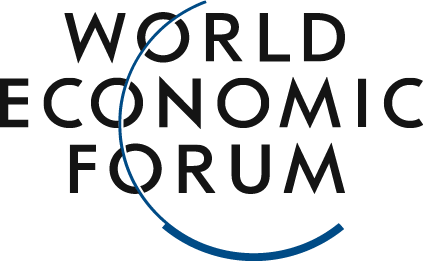The framework presented in the forum's new report demonstrates how integrating technologies from different stages of development can reshape value chains and give rise to innovative business models.
The "Combination, Integration, and Hybridization" framework identifies several standout technology combinations, such as cognitive robotics and digital twin ecosystems.
This framework empowers industry leaders to invest in building ecosystem readiness, driving systemic change across sectors such as infrastructure, energy, transportation, and healthcare.
To read the full report, please click "Read More."
Today, the World Economic Forum released a report analyzing how emerging technology ecosystems are reshaping industry landscapes. The report also highlights how business leaders can leverage these insights to strategically guide investments, build critical capabilities, and position themselves within evolving ecosystems. Additionally, the report offers policymakers valuable perspectives, emphasizing how cutting-edge technologies are mutually reinforcing and interconnected—driving breakthroughs in regulatory barriers while enabling far-reaching, systemic impact across industries.
The "Technology Convergence" report, jointly released by the World Economic Forum and Capgemini, introduces the "Combination, Integration, and Fusion" framework, designed to help decision-makers identify where emerging technologies can intersect and give rise to innovative business models.
“Without a doubt, rapid advancements in multiple technology fields are driving transformation across industries. The ‘Technology Fusion’ report provides leaders with a clear framework to harness the upcoming wave of technological innovation,” said Jeremy Jurgens, Managing Director at the World Economic Forum.
By evaluating technology maturity and deployment environments, the report identified 23 promising combinations—selected from over 230 sub-elements across eight key areas: artificial intelligence, pervasive computing, synthetic biology, spatial intelligence, robotics, advanced materials, next-generation energy, and quantum technologies.
This framework focuses on how technology combinations drive breakthroughs in individual areas, while also highlighting that artificial intelligence serves as a critical enabler—empowering many of these synergistic technologies to achieve commercial viability. Several standout technology combinations demonstrate the transformative potential of tech convergence across industries such as infrastructure, healthcare, energy, and transportation.
Cognitive Robotics:Advances in agent-based AI, spatial intelligence, and robotics—particularly in manipulation and adaptive control—are empowering autonomous systems to make intelligent decisions in complex environments, while also driving progress in automotive and smart manufacturing sectors.
Digital Twin Ecosystem:Advances in sensor networks and AI-powered simulation systems are refining digital twin technology, enabling the creation of more integrated, end-to-end impact capabilities—and driving greater efficiency and versatility across industries, from aerospace to healthcare services.
Hybrid Quantum-Classical Computing:This technological approach combines the power of quantum capabilities with the reliability of classical systems, unlocking quantum potential in fields such as finance, molecular simulations, and complex optimization.
Materials Informatics:Predictive modeling and transformer-based deep learning architectures enable virtual testing of material compositions and structures before laboratory synthesis, accelerating the development of advanced materials and helping industries like manufacturing and chemicals achieve significantly shorter, more efficient R&D cycles.
"The real issue isn’t whether technology convergence can reshape industry development—because that transformation has already begun. The real challenge lies in how companies can strategically position themselves to become leaders in driving this technological integration," says Aiman Ezzat, CEO of Capgemini.
This report provides leaders with a practical guide to turning insights into action, urging them to adopt systems thinking, balance investments across various stages of technology development, restructure value chains, and prepare for ecosystem readiness. The report draws on a comprehensive blend of quantitative and qualitative analysis from the World Economic Forum’s Technology Pioneers Community, which brings together subject-matter experts—leaders from the Forum’s global networks spanning business, academia, civil society, and the public sector—who contributed their specialized knowledge and real-world case studies. Additionally, Capgemini’s survey of 2,000 senior executives across 18 countries, 10 industries, and 5 continents further enriched the report with valuable insights and perspectives.
On the "Technology Integration" Initiative
The World Economic Forum’s “Technology Fusion” initiative is dedicated to connecting emerging technologies such as artificial intelligence, quantum computing, biotechnology, spatial computing, and robotics, while analyzing their evolving trends. It aims to support the development of practical insights and tools that empower tech experts, policymakers, economists, and business leaders to design diverse systems, structure organizations, and scale solutions beyond any single technology—ultimately unlocking broader societal value.

Feel free to share this in your WeChat Moments; please leave a comment at the end of the post or on our official account if you’d like to republish.
Editor: Wan Ruxin
The World Economic Forum is an independent and neutral platform dedicated to bringing together diverse perspectives to discuss critical global, regional, and industry-specific issues.
Follow us on Weibo, WeChat Video Channels, Douyin, and Xiaohongshu!
"World Economic Forum"


